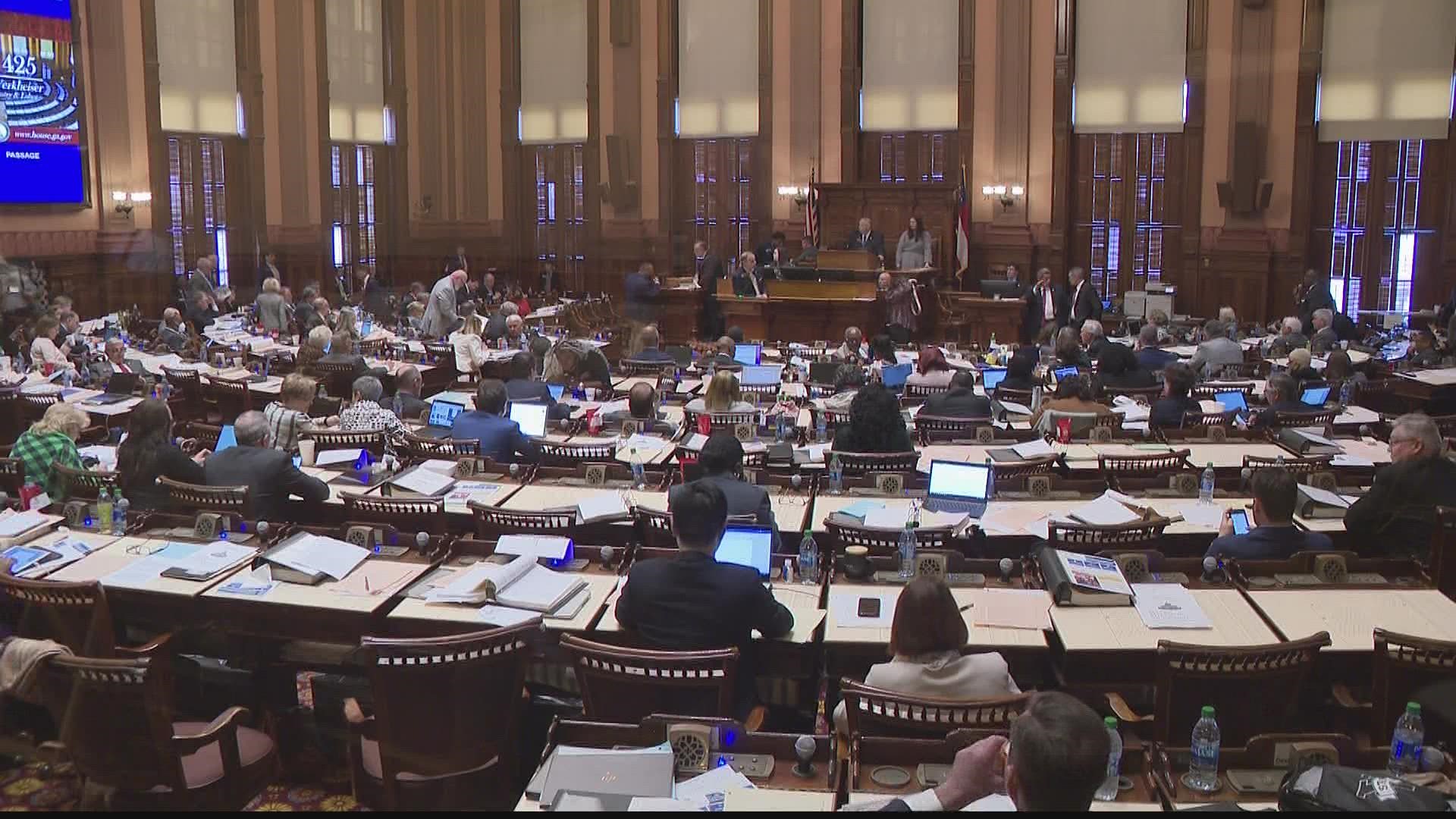ATLANTA — Georgia lawmakers worked into the night on what’s known as crossover day – which marks the home stretch for the session’s conclusion in early April.
Republicans advanced some bills that will make conservative voters happy in an election year.
Republicans in the Senate passed a bill that would enhance penalties for unlawful assemblies – a bill directed at protests that have roiled Atlanta and other cities the last two years.
They also passed a bill that would protect protesters at school board meetings from being evicted too quickly.
And House Republicans passed an election bill that would give the GBI authority to investigate election irregularities – a bill rooted in discredited allegations connected to the 2020 election.
Republicans also tried to pass a bill that would deliver six thousand dollar vouchers to families transferring children to private schools.
“This is an opportunity for us to give students trapped in school systems that are underperforming an opportunity to move forward,” said the sponsor, Senate president pro tem Butch Miller (R-Gainesville).
That measure failed when a handful of Republicans voted no, along with the entire Democratic caucus.
As the debate wore on, lawmakers were mindful of the crossover day deadline.
"By all means lets vote for this. Get it on across" to the senate, said state Rep. Alan Powell (R-Hartwell), discussing a medical marijuana measure.
The House passed a bipartisan bill designed to restart the process to award licenses to Georgia growers of medical cannabis.
The House also passed bills encouraging schools to schedule recess for children K-5. Gov. Kemp vetoed a similar bill in 2019.
The House also passed a bill to increase the salaries of lawmakers based on Georgia's median income. The measure would double their current salaries of about $17,000, and would give Georgia voters the chance to decide.
Each bill that passed on crossover day is only halfway to becoming law. But because they passed, they have a chance now of becoming law.
Crossover Day is a quirk of bi-cameral government. Two legislative bodies – the house and senate – operate separately.
To become law any bill has to pass one of the two chambers by crossover day. It then crosses over for consideration in the other chamber.
Bills that don’t cross over are considered dead for the year -- except for those whose language gets grafted onto another bill and passes in the legislature’s final days.
That allows some new legislation to pass after crossover day – which senate rules committee chairman Sen. Jeff Mullis (R-Chickamauga) colorfully alluded to in a committee meeting with a senator struggling to get a bill passed.

